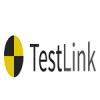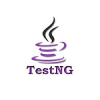Software Quality Assurance
Software testing is a crucial process in the development lifecycle of software applications or systems. It involves evaluating and validating the functionality, performance, usability, and security of the software to ensure its quality and reliability.
The primary goal of software testing is to identify defects, bugs, or errors in the software and verify that it meets the specified requirements. By conducting various tests and assessments, software testers aim to ensure that the software performs as intended, meets user expectations, and delivers a positive user experience.
Software testing encompasses a wide range of activities and techniques, including:
Test Planning: Defining test objectives, test scope, test strategies, and test schedules based on project requirements and constraints.
Test Design: Creating detailed test plans and test cases that outline the specific inputs, expected outputs, and steps to execute for each test scenario.
Test Execution: Running the tests according to the defined test cases, recording the results, and comparing the actual outcomes against the expected results.
Defect Reporting and Tracking: Documenting and reporting any issues or defects encountered during testing, including the steps to reproduce them. Tracking the defects and ensuring their resolution.
Regression Testing: Re-running tests on modified or fixed software to ensure that the changes have not introduced new defects or impacted existing functionality.
Performance Testing: Evaluating the software’s performance under various conditions, such as load testing, stress testing, and scalability testing, to ensure it can handle expected workloads.
Usability Testing: Assessing the software’s user interface, user experience, and ease of use to ensure it meets user expectations and provides a satisfactory experience.
Security Testing: Identifying vulnerabilities, weaknesses, or risks in the software’s security measures and ensuring it can withstand potential threats or attacks.
Software testing can be conducted through manual testing, where testers execute test cases manually, or through automated testing, where specialized tools and scripts automate the execution of tests. Both approaches have their advantages and are often used in combination to achieve comprehensive test coverage.
Overall, software testing plays a critical role in ensuring the quality, reliability, and functionality of software applications. By identifying and addressing issues early in the development process, it helps minimize risks, enhance user satisfaction, and deliver a robust and reliable software product.
At WeGain Technologies, We offer reliable quality services as we believe in the fact that quality should be an intrinsic part of the business strategy from inception through to delivery. We will make sure that you provide an exemplary customer experience at a lower cost by partnering with us.
Managed Services
Manage, deliver and govern end to end software testing by taking accountability for excellence, cost and time to market
Enterprise Application Testing
Ensure your enterprise software and applications perform as specified, are rolled out quickly and business continuity is not disturbed during deployment.
Specialized Testing
Assure quality with services that include Automated testing, non-functional testing, ERP testing, service-oriented architecture (SOA), and mobile testing









